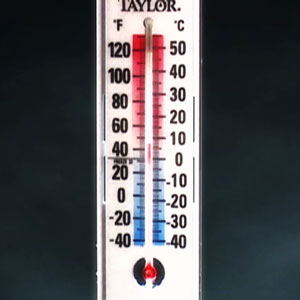Discovery of protein "thermometer" may aid fight against bacteria
 Hamburg - German scientists have discovered a unique protein "thermometer" which may one day aid in fighting deadly bacteria.
Hamburg - German scientists have discovered a unique protein "thermometer" which may one day aid in fighting deadly bacteria.
Researchers in the Molecular Infection Biology group at the Helmholtz Centre for Infection Research (HZI) in Braunschweig, Germany, and the Braunschweig Technical University showed for the first time that bacteria of the Yersinia genus possess a unique protein thermometer - the protein RovA - which assists them in the infection process.
Like a digital thermometer, this protein measures both the temperature of its host as well as the host's metabolic activity and nutrients. If the the host temperature is 37 degrees Celsius (98.6 F) then the protein activates genes for the infection process to begin, according to the German researchers, whose results have been published in the current online edition of the PLoS Pathogens journal.
Yersinia can trigger various different diseases: best well-known is the Yersinia pestis type which caused the Plague in medieval times. This led to the death of around a third of Europe's population.
Researchers at the HZI, led by Petra Dersch, said their findings may one day enable scientists to "switch off" the protein thermometer so that the bacteria is not activated.
Dr Dersch wrote that the protein reads the temperature for the bacteria. Depending on the environment of the bacteria, this protein either contains the factors required for the infection to begin or else adapts to life within the host.
"The functioning of RovA in this way is unique among bacteria," writes Dr Dersch.
Until now, little was known about RovA and the fact that it reacts to temperature.
"We have long been searching for the mechanisms which regulate RovA activity," writes Petra Dersch. "It was therefore all the more surprising to discover that RovA controls various processes by acting as a thermometer and as such is self-regulating." (dpa)
